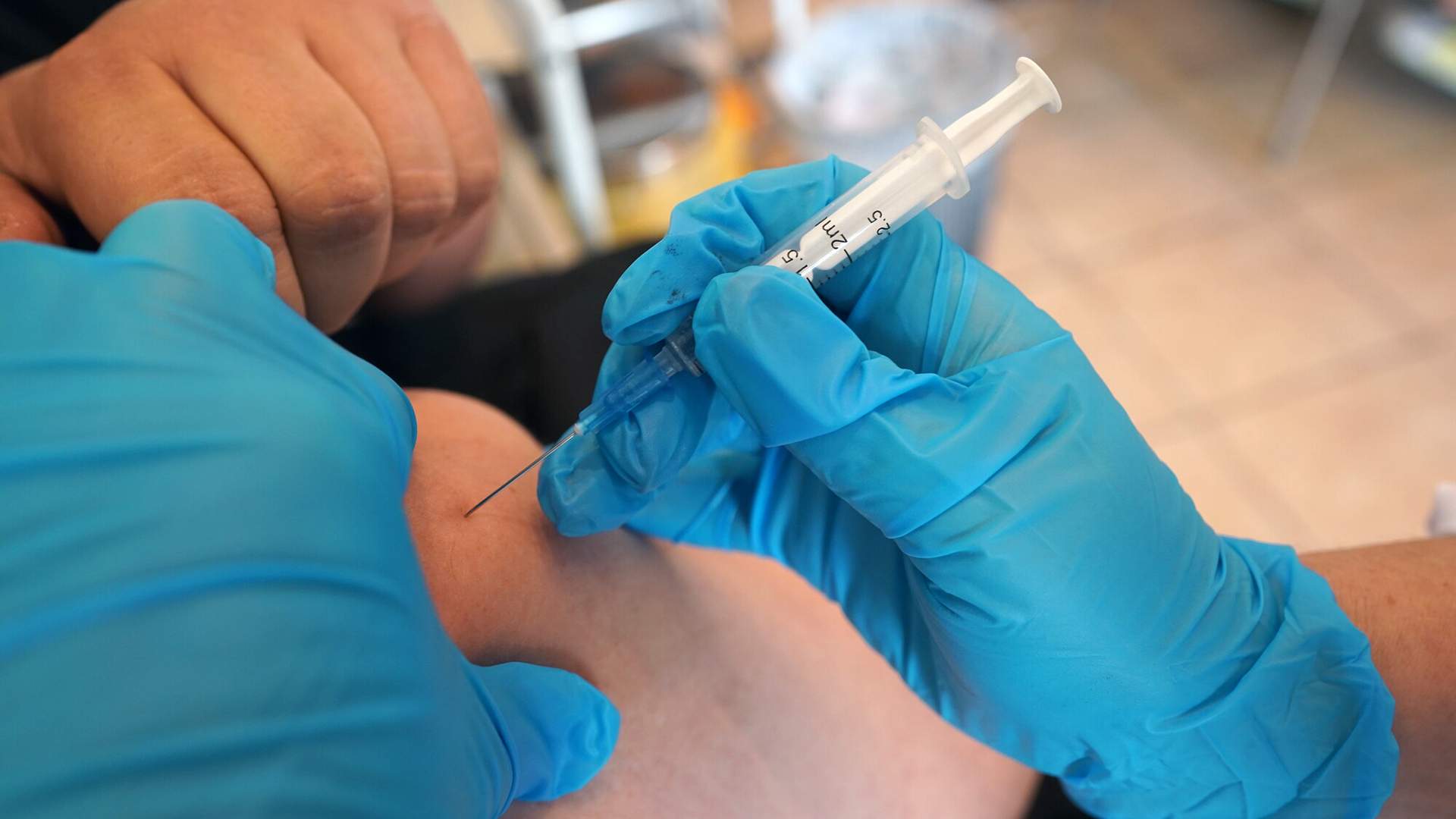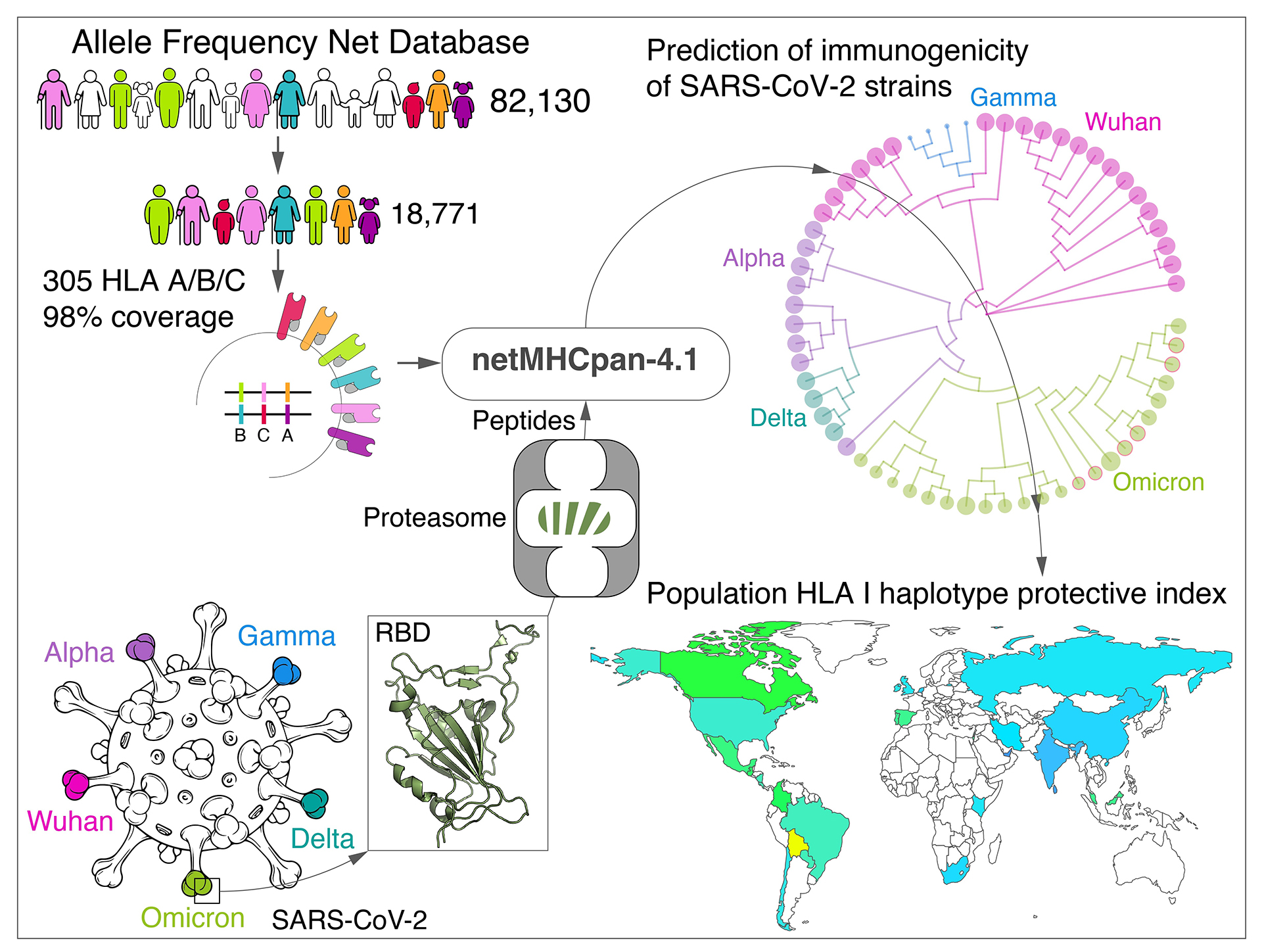- Статьи
- Science and technology
- Traces of the strain: scientists will increase the effectiveness of coronavirus vaccines
Traces of the strain: scientists will increase the effectiveness of coronavirus vaccines

Russian scientists have found a way to improve COVID-19 vaccines by strengthening the body's immune response. To do this, they conducted a large-scale study of the proteins of five strains of coronavirus with certain molecules on the surface of infected human cells. Then they found three key peptides of Omicron, which cause the strongest reaction of the defense system. Their isolation and inclusion in the vaccine will ensure a universal immune response to both already circulating strains and future mutations of the virus, experts believe. For more information about the technology and how it was evaluated by the developer of Sputnik V, see the Izvestia article.
How coronavirus infects human cells
Scientists from the Shemyakin and Ovchinnikov Institute of Bioorganic Chemistry of the Russian Academy of Sciences (Moscow), together with colleagues from the Research Institute of Systems Biology and Medicine (Moscow), studied the receptor-binding domains of the S-protein of five coronavirus strains: "Wuhan-Hu-1" (the original version of the virus), "Alpha", "Delta", "Gamma" and "Omicron". When the virus enters the body, it is the S protein that first interacts with human cells, and antibodies are also produced to it when most vaccines are administered.
When viral particles infect a human cell, protective processes are triggered in it, the researchers explained to Izvestia. Inside the proteasomes, the intracellular complexes responsible for protein breakdown, the virus proteins are broken down into small fragments. These fragments are then transported to MHC I molecules (related to the major histocompatibility complex, which plays an important role in immune responses), which expose them to the cell surface. There they are recognized by T-lymphocytes, which trigger an immune response.
This process allows the body to find infected cells and destroy them, preventing the spread of infection. The study of viral proteins and the interaction of their fragments with MHC I opens up new opportunities for improving the effectiveness of vaccines, the scientists emphasized.
— Our research not only helps to better understand the mechanisms of interaction of the SARS-CoV-2 virus, which causes COVID-19, with the human immune system, but also provides specific guidelines for the creation of a new generation of vaccines. In the future, we will continue to investigate socially significant viral infections, including other respiratory viruses, in order to identify the universal components of the immune response and develop strategies for their prevention," Anna Kudryaeva, project manager, Candidate of Chemical Sciences, senior researcher at the M.M. Shemyakin and Y.A. Ovchinnikov Institute of the Russian Academy of Sciences, told Izvestia.
The scientists isolated proteasomes (intracellular complexes) from human cell cultures and analyzed which fragments are formed during S-protein cleavage. It turned out that the S-protein of the Omicron strain is cleaved differently than proteins of other strains. This affects the binding of viral peptides by MHC I molecules and, consequently, the immune response.
Effectiveness of coronavirus vaccines
As a result, the researchers identified 821 unique viral peptides and compared them with a database of 18,771 variants of histocompatibility complex molecules distributed among the human population. The analysis showed that three Omicron peptides are able to bind most effectively to MHC I molecules.
This discovery explains why some people are more resistant to infection with Omicron or carry the disease in a milder form. Moreover, two of the three key peptides of this strain are preserved in modern variants of SARS-CoV-2, which confirms their importance for the immune response, the scientists said.

The data obtained can play a key role in the development of new vaccines. The creation of these drugs containing the identified key peptides can increase the effectiveness of the immune response and provide better protection against new variants of coronavirus.
This is a truly significant achievement for vaccine development, as these peptides are universal for all coronavirus strains. Their isolation and inclusion in the vaccine will ensure a universal immune response both to already circulating strains and, possibly, to future mutations of the virus, said Andrey Pozdnyakov, chief physician of the Invitro clinical Diagnostic Laboratory.
— Vaccination remains important for certain population groups, primarily for people with severe background pathology and comorbidity. These are patients with immunodeficiency, endocrinological diseases, cardiovascular pathologies, COPD. For them, any respiratory infection poses a potential threat, so vaccination against COVID-19 remains relevant for such patients. In addition, the possibility of new, more dangerous mutations of the virus cannot be ruled out," he said.
It is impossible to scale specific work to other viruses, but the principle itself is very promising. The study investigated the mechanism of presentation of virus fragments on the cell surface, which ensures their rapid recognition and activation of lymphocytes, the specialist emphasized.
— MHC I molecules in humans and other living organisms determine the possibility of cytotoxic lymphocytes, that is, T-cell immunity, being involved in the immune response. However, the Sputnik V vaccine does this by itself without additional tricks, as it reproduces the natural process of antigen presentation. This mechanism appeared in the course of evolution to control the changes that occur as a result of a malfunction of the genetic apparatus. In this way, the entire immune system is fully activated," said Alexander Ginzburg, Director of the N.F. Gamaleya National Research Center for Epidemiology and Microbiology, Academician of the Russian Academy of Sciences.
At the same time, coronavirus infection remains a serious threat, as its evolutionary potential is aimed at ensuring that it remains highly contagious. SARS-CoV-2 has infected a large part of the population to one degree or another, and it causes severe immunodeficiency lasting from two to three months, during which a person is defenseless against infections such as mycoplasmosis, ureaplasmosis, staphylococcus, enterococcus, pneumococcus, and other viruses, the specialist emphasized.
The results of the study, supported by a grant from the Russian Science Foundation (RSF), are published in the journal iScience.
Переведено сервисом «Яндекс Переводчик»






